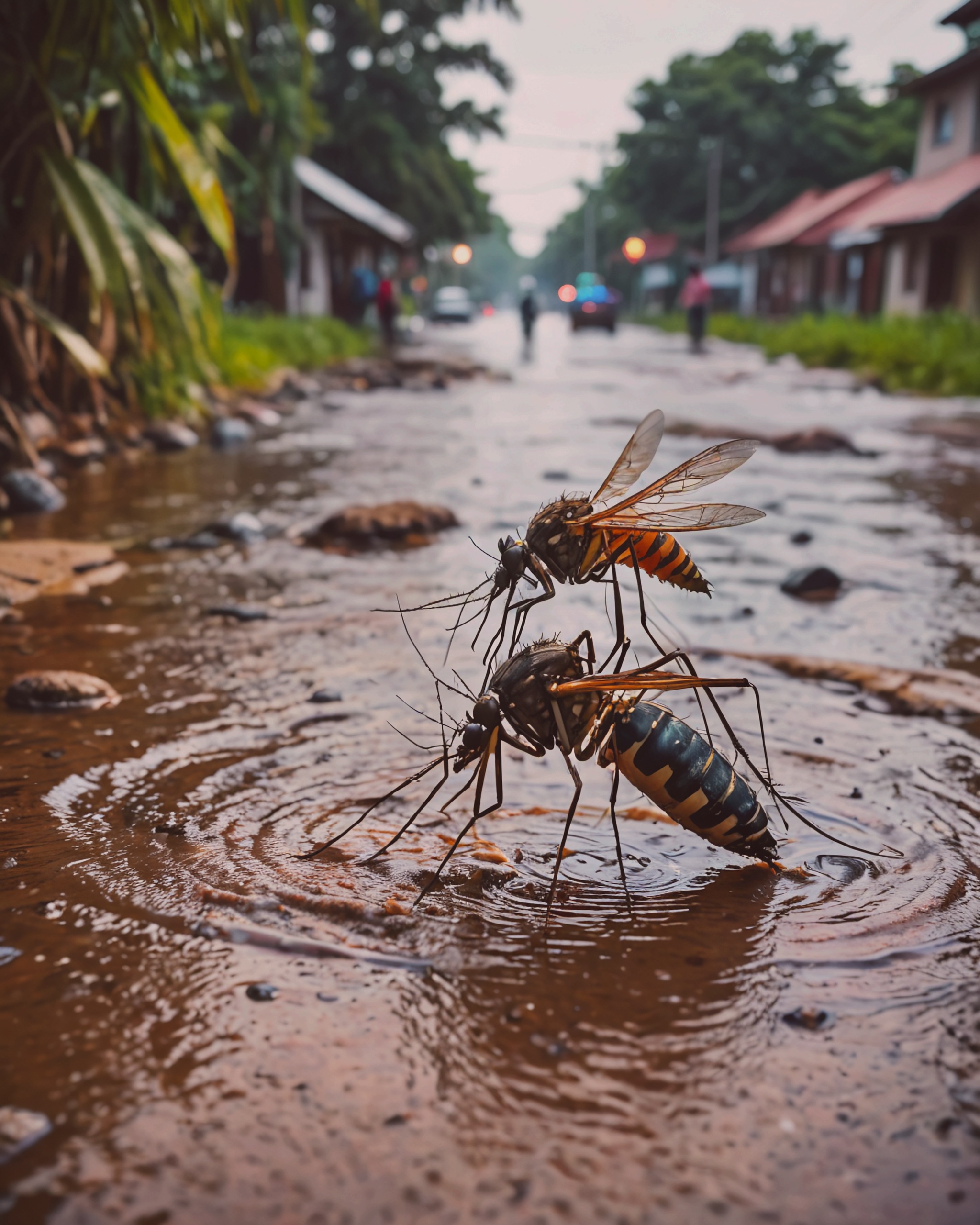PITTSBURGH (KDKA) — A Baldwin resident has been hospitalized after contracting West Nile Virus, marking Allegheny County’s first human case of the virus this year. This case also represents Pennsylvania’s first reported human infection of West Nile Virus for 2024.
Details of the Case
The Allegheny County Health Department confirmed that the resident from Baldwin experienced symptoms including fever and weakness, which led to their hospitalization. While specific details about the patient’s condition remain confidential, it has been disclosed that the individual had been frequently exposed to outdoor environments. The health department has not provided further information about the patient’s current status or recovery process.
Response and Measures to take against West Nile Virus
In light of this case, the Pennsylvania Department of Environmental Protection (DEP) has increased efforts to monitor mosquito activity in the Baldwin area. Additional mosquito traps have been set up to track and manage mosquito populations, with the aim of reducing the risk of further transmission.
Understanding West Nile Virus
Transmission and Symptoms
West Nile Virus is primarily transmitted to humans through the bite of an infected mosquito. These mosquitoes become infected when they feed on birds carrying the virus. According to the Centers for Disease Control and Prevention (CDC), most people infected with West Nile Virus do not exhibit any symptoms. However, approximately 20% of infected individuals may develop symptoms such as fever, headache, body aches, joint pains, vomiting, diarrhea, and a rash.
In rare cases, the virus can cause more severe neurological conditions, including encephalitis or meningitis, and less than 1% of infected people develop these serious complications.
Prevention and Control
Currently, there are no vaccines available to prevent West Nile Virus, nor are there specific antiviral treatments for the infection. The CDC recommends that individuals who suspect they have contracted the virus seek medical attention for proper evaluation and care.
To reduce the risk of contracting West Nile Virus, residents are encouraged to take preventive measures against mosquito bites. This includes:
- Using Insect Repellent: Apply insect repellent containing DEET, picaridin, or oil of lemon eucalyptus to exposed skin and clothing.
- Wearing Protective Clothing: Wear long sleeves, long pants, and socks, especially during dawn and dusk when mosquitoes are most active.
- Avoiding Outdoor Activities During Peak Times: Mosquitoes that carry West Nile Virus are most active from dawn to dusk, so limiting outdoor activities during these times can reduce the risk of bites.
Mosquito Control and Prevention
Identifying Breeding Sites
Mosquitoes can breed in very small amounts of stagnant water, such as in flower pots, birdbaths, and clogged gutters. To minimize mosquito breeding grounds around homes, residents should:
- Eliminate Standing Water: Regularly empty and clean items that can hold water, such as buckets, birdbaths, and pet dishes.
- Properly Dispose of Waste: Dispose of or recycle any containers that could collect rainwater.
- Maintain Pools and Water Features: Ensure that swimming pools and other water features are properly maintained and chlorinated.
Reporting Issues
If residents identify areas of stagnant water or mosquito breeding sites, they are encouraged to report these issues online through local government channels. Prompt reporting can help authorities address potential mosquito breeding areas more effectively.
By taking these preventative measures and staying informed about West Nile Virus, residents can help protect themselves and their communities from this potentially serious illness.
MORE ABOUT WEST NILE VIRUS:
Floods Unleash Mosquito Swarm: Early West Nile Virus Warning!



